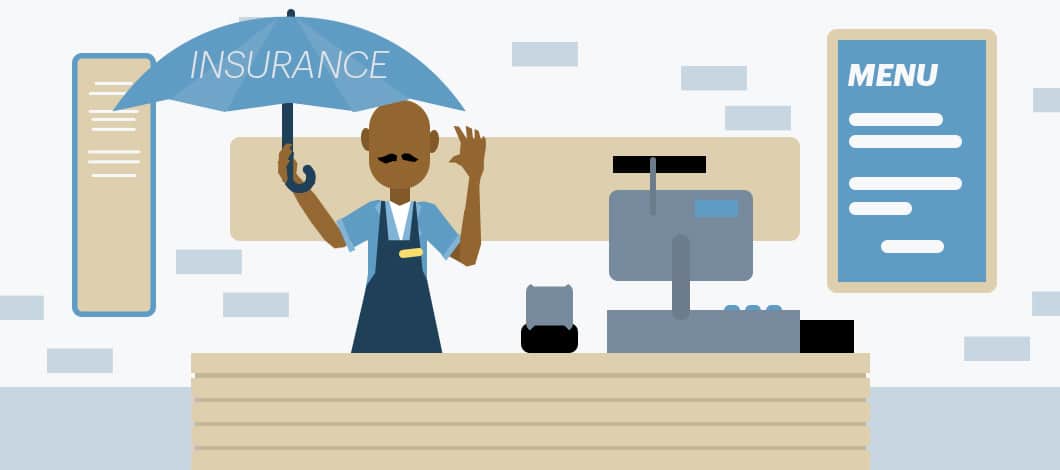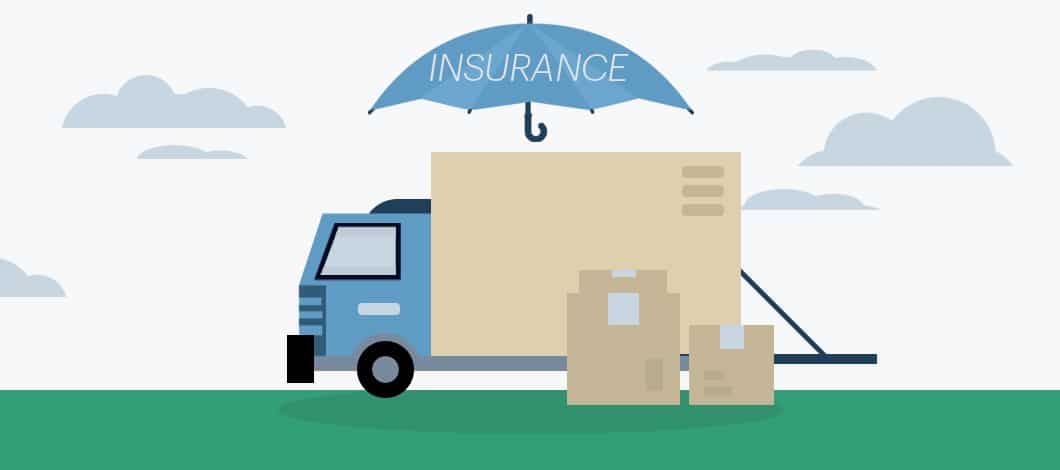Small business insurance costs vary for different types of policies.
Here are some average costs for 10 common types of insurance.
1. General Liability Insurance
General liability insurance also goes by other names, such as commercial general liability insurance or business liability insurance.
It covers your expenses when facing claims from third-party nonemployees. It is one of the most comprehensive and essential types of business insurance. Its scope typically includes claims such as:
- Physical injury to nonworkers, such as a customer slipping on the floor and breaking a hip
- Medical bills incurred because of physical injuries
- Property damage, such as a customer’s car getting a window broken on your parking lot
- Damage caused by product defects
- Reputational damage suits, such as libel allegations from a competitor claiming a post on your website damaged their business reputation
- Advertising claims, such as a trademark infringement allegation
- Legal costs
- Judgment and settlement costs
The exact scope of general liability insurance varies by policy, so make sure you read the details of your contract. This type of insurance typically doesn’t cover certain risks which fall under other types of insurance. Most notably, it doesn’t cover claims by employees, which fall under worker compensation and employer liability insurance.
What It Costs
General liability insurance small business cost usually runs about $30 a month or less, equivalent to $360 annually, a survey of 50,000 small businesses by insurance provider Hiscox USA found. In 95% of cases, policies cost less than $50 per month, or $600 annually. In 1% of cases, small business liability insurance cost ran more than$100 monthly, or $1,200 annually.
2. Worker Compensation Insurance
Where general liability insurance covers you in cases involving nonemployee claims, worker compensation insurance covers you in cases involving employee injury or illness claims.
Worker compensation pays for expenses such as:
- Employee wages lost because of injury or illness
- Medical expenses
- Legal expenses
- Support of employee families
Each state has its own worker compensation regulations. In general, if you have employees, you are required to carry worker compensation insurance. However, this can vary with the size of your staff and other factors.
You can check the regulations for your state with your state’s department of labor or the equivalent department, or by speaking with your legal advisor or insurance representative.
What It Costs
The average cost of small business insurance for worker compensation varies by state and other variables. In 2018, employer costs for worker compensation insurance ranged from 55 cents per $100 of covered wages in Texas to $2.25 per $100 in Alaska, according to data assembled by the nonprofit association the National Academy of Social Insurance. In terms of cost per month, insurance provider Insureon reports its customers pay a median premium of $47 per month, about $560 annually, for worker compensation insurance.

3. Employer Liability Insurance
Worker compensation claims don’t assume that you are liable (legally responsible) for employee damages, only that the employee became injured or sick while working for you. However, if an employee regards you as liable for damages they suffered because of fault or negligence, they may seek to obtain a higher settlement by filing a civil lawsuit outside their worker compensation claim. Employer liability coverage provides you with business lawsuit insurance in this circumstance.
In some states, you are required to carry both employer liability insurance and worker compensation insurance. These policies may come bundled together as a package.
What It Costs
When employer liability insurance is bundled with worker compensation insurance, the package usually costs $1,000 or less annually, according to business insurance research provider AdvisorSmith.
4. Professional Liability Insurance
Professional liability insurance goes by different names in different industries and contexts, including professional indemnity insurance and errors and omissions (E&O) insurance. It covers you from claims where a client alleges they suffered as a result of your professional advice or services. Professional liability insurance is required in some industries, such as healthcare, legal consultation and accounting.
What It Costs
Professional liability insurance runs a median of $59 a month, according to Insureon. This is the equivalent of $708 a year.
5. Product Liability Insurance
Product liability insurance covers you against claims that a product you manufactured, sold or distributed caused physical or financial damages. It pays for costs such as expenses stemming from illnesses or injuries, property damage and legal fees.
What It Costs
Product liability insurance is included in many general liability insurance policies. When itemized separately, small business insurance cost estimate for product liability coverage varies based on risk assessment. In a low-risk industry such as fashion retail, cost averages 25 cents per $100 in revenue (for example, $5,000 for $2 million in revenue), according to business intelligence provider HowMuch.net.
Costs are higher in higher-risk industries. For instance, a company which sells and ships chemicals which are potentially explosive can expect to pay more for product liability insurance.
6. Employment Practices Liability Insurance
Employment practices liability insurance covers your legal fees and settlement costs when a lawsuit accuses you of illegal business practices. For instance, this type of insurance covers you in the event of a lawsuit for discrimination, harassment or wrongful firing.
What It Costs
Employment practices liability insurance costs vary based on considerations such as how many workers you employ, how often your employees quit and your history of previous employment practices claims. A company with 5 to 20 employees will pay an average range of $800 to $3,000 annually, according to insurance provider Fusco & Orsini Insurance Services.
7. Commercial Property Insurance
Commercial property insurance covers your losses when your building, equipment or other covered property suffer from fire, theft or other covered losses. It normally excludes certain types of loss covered under other types of insurance, such as flood damage or auto damage claims.
What It Costs
The cost of commercial property insurance varies with considerations such as the size of your building and the value of your property. Insureon reports a median cost of $63 per month, about $755 per year.

8. Commercial Auto Insurance
Commercial auto insurance, also called commercial vehicle insurance, covers costs associated with injuries or damage caused by business owners or employees while driving company vehicles.
Policies vary in scope. Depending on the policy, coverage may include:
- Liability for damages to persons or property
- Repair or replacement following collisions
- Losses from noncollision factors such as theft or weather
- Damage from uninsured or underinsured motorists
- Car rental costs
Liability coverage is required in all states.
What It Costs
Commercial auto insurance costs vary by factors such as vehicle value, employee driving records and how much mileage you put on your vehicle.
A policy for a car typically ranges from $1,200 to $2,400 a year, while a truck ranges from $800 to $2,000, according to digital insurance marketing platform TrustedChoice.com. Vehicles that transport passengers such as taxis and busses cost more to insure.
9. Business Interruption Insurance
Business interruption insurance, also known as business income insurance, covers income lost when your operations are disrupted because of causes covered by your policy. Some policies also may cover operating expenses such as mortgage or rent, utilities and payroll.
Which causes are covered varies by policy. Causes typically covered include fire damage, wind damage or theft.
Coverage normally applies until you repair or replace damaged property enough to resume operations. With some policies, you may pay an additional premium to extend your coverage duration.
What It Costs
Business interruption insurance typically ranges from $40 to $130 per month, roughly $500 to $1,500 per year, according to Insureon. Costs may run higher if your company owes significant liabilities, you pay high rent or you work in an industry where there is a higher risk of property damage.
10. Commercial Umbrella Insurance
Commercial umbrella insurance may also be called a business owner’s policy (BOP). It extends the coverage provided by other types of insurance by raising coverage limits or bundling different types of insurance together.
For example, an umbrella policy may raise the limit of your general liability policy or it may combine general liability, worker compensation and auto coverage into a single policy.
What It Costs
The cost of commercial umbrella insurance varies by what is covered, what your coverage limits are and what your risk level is. In general, you will pay another $40 a month ($480 a year) for each additional $1 million you add to your coverage limits, according to Insureon. This can run higher for companies which require high coverage limits. For example, a construction company or health-care provider might pay an additional $2,500 a year for each $1 million of extra coverage, estimates HowMuch.net.
Build Small Business Insurance Costs Into Your Budget
Estimating your average monthly cost for small business insurance can help you plan your budget to make sure you allocate enough cash to cover this important expense item. While insurance costs can add up, they represent a necessary investment when you consider the potential risk of not having coverage.
If your financial planning indicates that your insurance costs may put a strain on your cash flow, consider using small business financing options such as a business line of credit to cover your costs.










